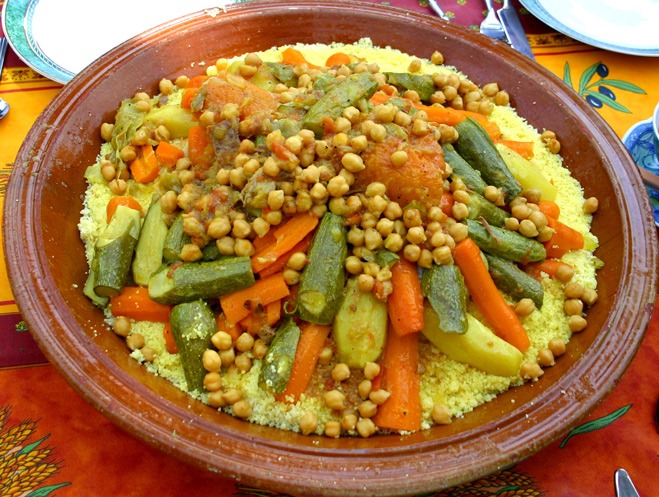Introduction: Exploring Libyan Cuisine
Libyan cuisine is a mix of cultural influences from North Africa, Mediterranean, and Middle Eastern countries. The country’s cuisine features a diverse range of flavors, spices, and ingredients that have been passed down from generation to generation. Libyan cuisine is rich and flavorful, reflecting the country’s long history and cultural traditions.
Historical and Geographical Context
Libya’s cuisine is influenced by its history and geographical location. The country is located in North Africa, bordered by the Mediterranean Sea to the north. The country was once part of the Ottoman Empire, which left a significant influence on Libyan cuisine. The country’s cuisine is also influenced by its neighboring countries like Egypt, Tunisia, and Algeria. The Sahara desert covers most of Libya, which has made traditional Libyan cuisine focus on hearty dishes that are filling and nutritious.
Traditional Libyan Dishes and their Ingredients
Traditional Libyan cuisine consists of simple yet flavorful dishes that are made with fresh ingredients. Some popular dishes include bazeen, which is a type of bread made with barley flour, and served with lamb or chicken stew. Another popular dish is shorba, which is a soup made with lamb or chicken and vegetables. Harissa is a spicy paste made from chili peppers, garlic, and cumin, and is often used as a condiment. Other popular ingredients in Libyan cuisine include couscous, chickpeas, dates, olives, and honey.
Arabic and Mediterranean Influences
Libyan cuisine has been influenced by Arabic and Mediterranean cooking styles. Arab influence is seen in dishes like bazeen, which is similar to the Arabic dish, thareed. The Mediterranean influence can be seen in dishes like couscous and olive oil-based dishes. Libyan cuisine also features spices like cumin, coriander, and saffron, which are common in Mediterranean and Middle Eastern cuisine.
Religious and Social Customs and Eating Habits
Religion plays a significant role in Libyan cuisine. Islam prohibits the consumption of pork, which is why lamb and chicken are popular meats in Libyan cuisine. Libyan cuisine also follows the social custom of serving large portions of food to guests, reflecting the country’s hospitality and generosity. Eating habits in Libya are also influenced by the country’s hot and dry climate, with many meals consisting of soups and stews that are filling and nutritious.
Modernization and Globalization of Libyan Cuisine
Libyan cuisine has undergone modernization and globalization in recent years, with many fast-food chains and international restaurants opening in the country. However, traditional Libyan cuisine remains popular and is often served in local restaurants and homes. The use of social media has also helped to promote Libyan cuisine globally, with food bloggers and YouTubers showcasing traditional recipes and cooking techniques. Libyan cuisine continues to evolve and adapt to changing tastes and trends, while still honoring its rich cultural traditions.

